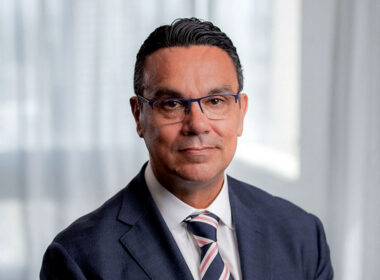Amid high levels of burnout in the legal sector, tracking staff sleep has been floated as a way to help. But experts worry it could do more harm than good.
It’s no secret that burnout is a big and long-standing issue for many Australian professionals, including lawyers.
Some top Australian law firms were investigated as far back as 2018 for allegedly overworking staff, part of a global problem for the legal profession brought on by factors like toxic work environments, workplace bullying and onerous billable hours.
Law Society of NSW polling shows the problem hasn’t gone away, with 47 per cent of private practice lawyers and 45 per cent of corporate legal workers putting in 50 or more hours per week.
At the same time, it remains unclear if the new ‘right to disconnect’ law, which passed Federal Parliament in February of this year, will improve things by providing some protection for lawyers from overwork, especially young lawyers who often bear the brunt.
In the UK, where the sector is grappling with its own burnout crisis, law firms have been urged to monitor the sleeping patterns of employees struggling with their mental health.
The country’s Mindful Business Charter (MBC), a mental health charity established to reduce unnecessary stress for staff, recently urged law firms to detect vulnerable staff by introducing time tracking systems to alert bosses if employees were working long hours.
It was part of the London-based charity warning that lack of sleep, as well as “persistent and unpredictable long hours of work without adequate breaks and rest”, put law firm staff at a significant risk factor of developing mental illness.
Back in Australia, Elena Lennox, director of Developmental, a workplace wellbeing company, believes tracking staff sleep has some merit given how important data has become in helping people “avoid levels of damaging stress leading to physical and mental ill health”.
“Law firms tracking employee sleep patterns is a step in the right direction because it’s vital that we ‘measure to manage,’” Perth-based Lennox tells LSJ.
The legal sector has reached the point where sleep tracking may now be needed. As she puts it, “law firms are teetering on a precipice”, the workplace consultant says.
In addition to sleep, she urges firms to put a spotlight on issues like poor communication, lack of support, bullying, lack of job satisfaction and feelings of unfairness to create “mentally healthy” workplaces, where people feel safe to speak out.
She says while current laws mandate that “companies must consult with their staff to understand the stressors that are causing harm” it’s the case that “you won’t sleep very well if you’re overworked, bullied or harassed”.
“Poor sleeping habits are just the symptom of a malaise that permeates many law firms,” Lennox says. “The finger, in my mind, can be pointed at greedy partners who love the billable hours system that is so punitive to graduates and young lawyers.”
Oliver Morrisey, owner and director of Sydney-based Empower Wills and Estate Lawyers, also backs the idea of tracking employee sleep, with some caveats.
In Morrisey’s view, directly monitoring sleep may be too intrusive, but firms could give employees access to “self-tracking tools” as part of a suite of mental health resources.
“I think a productive approach would involve providing employees with mental health resources, such as wellness programs or counselling, without necessarily monitoring personal data,” Morrisey tells LSJ.
“Self-tracking tools, where employees can voluntarily track their health metrics, offer an empowering, privacy-respecting way to stay mindful of sleep and mental health.”
Whatever the approach, firms must act on burnout, he says, pointing to sleep as an important part of fixing the long-running issue afflicting Australian firms.
At his firm, Morrisey says he has rolled out measures that can leed to staff sleeping better.
“Offering flexible hours, for instance, has allowed team members to balance workload with their personal well-being, helping them work when they feel most productive,” he says. “This flexibility often leads to better rest and resilience, as employees can manage their schedules around natural energy peaks and avoid late nights.”
As a general principle, he says workplaces that support flexible hours, respects boundaries, and offer mental health resources will be ahead of the pack in preventing burnout.
“Supporting mental well-being in this way can make a significant difference for employees, without the need for intrusive monitoring.”
The call for firms to consider sleep tracking ties into a broader debate about the merits of companies harnessing the biometric data of staff for insights into their work-life balance.
The business case for firms is clear. Global insurer Allianz, for instance, points to industry research showing 44 per cent of employees said that quality of sleep significantly impacted their ability to fully contribute at work.
To this end, the insurer urges businesses to “leverage” staff smart phones and watches in order to keep track of workers’ sleep patterns and quality.
“Just be aware of privacy laws and considerations, with employees given the choice of opting out if there is a conversation about monitoring sleep,” it advises. “An even simpler solution is to provide subscriptions to meditation apps.”
A pilot in the area has been done by multinational consulting firm PwC. It recruited 2,000 “volunteers” at its UK arm to wear biometric tracking devices connected to their work calendars to unlock “a new world of insight for people and employees, supporting employee engagement and wellness”.
According to the firm, the anonymised results were impressive, allowing it to see how the COVID-19 pandemic impacted the number of steps employees took each day.
The professional services player also pointed to “invisible and often insidious ways that disrupted work patterns could manifest physically and psychologically”.
“Volunteers could see, on their personalized dashboards, how back-to-back video calls impacted sleep, or their ability to switch tasks,” PwC’s Laura Hinton says in the report. “Or they could see if particular patterns of work were creating evidence of stress.”
The report says given sleep affects cognition, which in turn affects professional and personal functioning, the tracking tool gave participants “a new way of checking in with themselves”.
It also showed, as per PwC, a need to empower workers to take more breaks and prompted team leaders also explored innovations like walking meetings to encourage movement.
Rebecca Louden, an associate professor at Griffith University’s Department of Employment Relations and Human Resources, is less upbeat about monitoring legal workers’ sleep.
Louden says with it being an “invasion of staff privacy”, companies keen on the idea would likely have to make it voluntary via something like an Employee Assistance Program (EAP).
But a stumbling block with that approach, she says, is EAPs usually have very low take up.
“If you’re going to go down that path you really want to be looking at, why don’t people take them (EAPs) up? And it’s usually things to do with the workplace, around trust, around what the motives are,” Louden tells LSJ.
With that in mind, she recommends firms make it very clear to staff that any move to roll out a sleep tracking program is being done on a voluntary, and confidential, basis.
“You want people to know exactly what the information is going to be used for,” she says. “They want to know that it’s going to be used to help them, not punish them (and) there’s safeguards in place to make sure happens now and into the future.”
An approach likely to have more buy-in from staff is to ask staff if they want to track their sleep then consult with them on the results, the academic says.
This is preferable, she says, because it steers towards best practice on staff wellbeing.
“Ultimately, what you want to do to improve people’s wellbeing is to empower them to have control,” Louden says.
This type of strategy may be easier than it sounds to implement, according to Aaron McEwan, behavioural scientist and vice president at research and advisory firm Gartner.
That’s because staff appear quite willing to share their data, with some conditions.
He says a Gartner poll found 52 per cent of employees would be happy to publicise their anonymised wellness, including things like sleep tracking, on open internet forums.
“So there’s quite a strong kind of desire from employees to make that data public,” McEwan says. “I think what sits underneath that is a desire to kind of shift these cultures – toxic cultures, or overwork culture.”
What’s more, the firm’s research shows 67 per cent of employees would be willing to share
their data with their employers, which McEwan calls a “promising sign” on the surface.
But “there’s a really big caveat to it, and that is that what they want in return for that data is an improvement in their experience of work,” he adds.
“The thinking is along the lines of ‘I’m willing to share with my employer how much sleep I get if it means I’m going to get more sleep’”.
Still, he questions the goal of catching at-risk employees via tracking their sleep, saying it amounts to “stepping in after the damage has been done in many ways”.
Rather, McEwan urges firms to fix broken workplace dynamics impacting their staff.
“I think there are things that law firms can do to combat this kind of accepted culture of long hours,” he says. “There’s a huge opportunity to tackle that culture. I would almost see this kind of tracking as a bit of a distraction from a much bigger issues.”
Bond University organisational Behaviour expert Libby Sander is also sceptical about the merits of staff handing over sleep data to employers.
“It’s one thing to ask people how much sleep they’re getting it’s another thing to share their wearable data with them,” Sander says.
She notes that how much sleep someone need differs markedly from person to person, making it tricky to use the data even if an employer manages to obtain it.
“The quality of their sleep may be extremely varied, they might be asleep for a long time but they might be waking up, they might not be sleeping deeply, they could be not exercising, they could be using drugs, alcohol, other substances so it’s a very singular metric.”
Sander says law firms’ wellbeing efforts should be on what’s happening at work, pointing to research and practice that wellbeing comes from a “whole range of initiatives”.
“Most predominantly (it’s) from the design of work itself, the expectations of outputs, leadership and management behaviours, and organisational culture,” Sander says.
“Just telling people to sleep more is not going to address deficiencies in any of those areas, so we need to look at wellbeing as a systemic issue and consider all of those things before we just decide how much people are sleeping.”
She likens sleep tracking to “when companies offer yoga classes and massages at the desk”.
“That’s all great but if you’ve got a sociopathic narcissistic boss that’s not going to help.”




